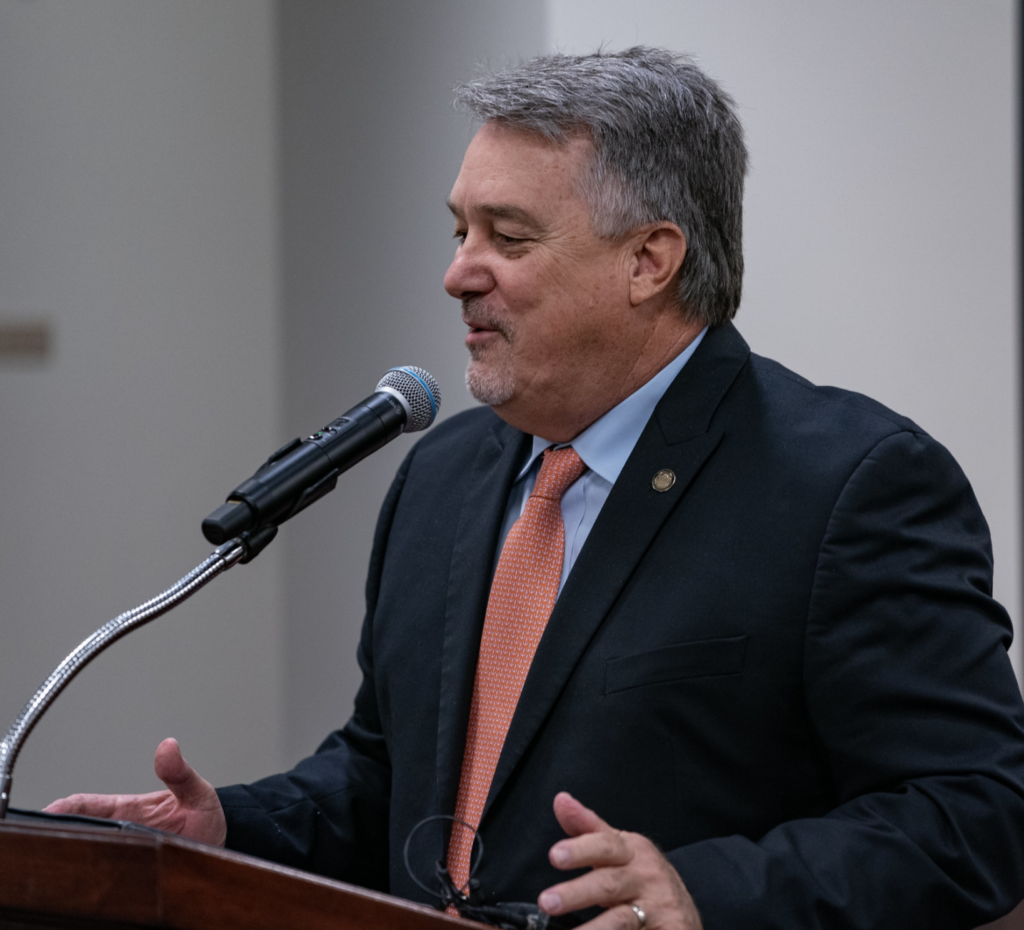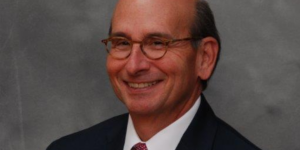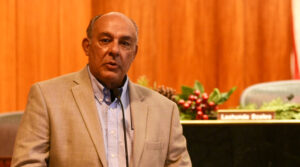House Speaker Nathaniel Ledbetter announces committee appointments

On Friday, State Representative Kyle South (R-Fayette) resigned from the Alabama House of Representatives to take a job as the President and CEO of the West Alabama Chamber of Commerce. This move created vacancies in the committees on which he served. Speaker of the House Nathaniel Ledbetter (R-Rainsville) announced his appointments to fill those committee vacancies. Effective July 1, these House members will be appointed to the following committees: Rules Committee: Rep. Debbie Wood (R—Valley) Ways and Means General Fund Vice Chair: Rep. Chris Blackshear (R—Smiths Station) Ways and Means General Fund Committee: Rep. Kerry Underwood (R—Tuscumbia) Insurance Committee: Rep. Matt Woods (R—Jasper) Financial Services Committee: Rep. James Lomax (R—Huntsville) Joint Transportation Committee: Rep. Rhett Marques (R—Enterprise) ARPA Oversight Committee: Rep. Jeff Sorrells (R—Hartford) South’s departure had been announced weeks ago, giving the Speaker plenty of time to plan for making these appointments. Governor Kay Ivey will soon announce the dates for the special election to fill the vacancy in House District 16. There are now two vacancies in the 105-member House of Representatives. The other is in House District 55, where former Rep. Fred Plump (D-Birmingham) resigned and pleaded guilty to public corruption charges. The Alabama Legislature will meet on July 17 for its second special session to address court-ordered congressional redistricting. To connect with the author of this story or to comment, email brandonmreporter@gmail.com.
Steve Flowers: Political potpourri

Even though it is not an election year, the Alabama political pot is heating up and beginning to boil as we celebrate the 4th of July, and the summer heat settles into the Heart of Dixie. The 2024 candidates for some open state judicial posts have been stirring around all year, and also candidates for next year’s local elections are gearing up all over the state. There has also arisen a surprise election in Alabama’s largest county. Imperial Jefferson County has a Special Election for a very important and pivotal county commission seat. Republican Steve Ammons vacated this seat to take the post as CEO of the Birmingham Business Alliance. In every other county in the state, a vacant county commission seat is filled by appointment by the governor. However, Jefferson County has an unusual local amendment that calls for a Special Election. This local act does not only call for a normal special election but renders a weird, wild west open no primary Special Election. It calls for a very quick, nonpartisan election similar to Louisiana. There are no party primaries and no party labels. Everybody and their brother can run, and the Jefferson County electorate has no way of knowing who they are, what they stand for, or their positions on anything. All you have to do is get 100 signatures, and you are on the ballot. I am surprised that there are not 100 people running. This race also has only a short window. People could start getting their 100 signatures around June 1 and get this; the election is on July 18. You are looking at an election in less than two weeks in the middle of the summer that only affects 20% of the population of Jefferson County. Folks, this one could very well break records for low voter turnout. However, it is a very important and pivotal election for a seat that will determine the partisan makeup of the state’s largest county. The current makeup is two Republicans and two Democratic commissioners. Republicans had a 3-2 advantage with Ammons on the Commission. You would assume that the vacant Ammons’ seat would be filled by another Republican because it is made up of the most affluent enclaves in the state, which include Mountain Brook, Vestavia, Homewood, and silk stocking Hoover districts along the 280 corridor. However, as stated, there are no party labels by any candidate, no forums, and no time to campaign – only a list of names. The assumption is a Republican will win. However, the Homewood, Mountain Brook areas are one of the few enclaves of upscale, liberal do-gooder, white Democrats in the state. It is imperative that the Republican Party in Jefferson County identify who their preferred Republican candidate is in this race and get out their vote. It appears that they may have done just that and have chosen Judge Mike Bolin. The election is just around the corner on July 18. Justice Mike Bolin is like manna from Heaven for the Jefferson County Republicans. As the old saying goes, “he was at the right place at the right time.” Judge Bolin recently retired from the Alabama Supreme Court and has time on his hands, and this seat comes open. Mike Bolin is one of the most respected and popular public servants in our state. He is also one of the most accomplished Jefferson County political figures of this era. He is Jefferson County through and through. He was born and raised in Homewood, went to college at Samford University and law school at Cumberland School of Law on Lakeshore Parkway in Homewood. He and his wife, who is also from Jefferson County, currently live in Vestavia. Mike practiced law in Jefferson County for almost two decades, then was elected Probate Judge of Jefferson County, where he served for 16 years. While serving as Probate Judge of Jefferson County, he was elected to the Alabama Supreme Court, where he served for 18 years. He is a man of utmost integrity. Jefferson County is fortunate to have him take on this task. See you next week. Steve Flowers is Alabama’s leading political columnist. His weekly column appears in over 60 Alabama newspapers. He served 16 years in the state legislature. Steve may be reached at www.steveflowers.us.
Jefferson County special election just two weeks away

Alabama Governor Kay Ivey called a special election for County Commission (District 5) on July 18th due to the resignation of Commissioner Steve Ammons. Because Jefferson County does things differently from almost every other county in the state, this special election primary is non-partisan. The District 5 commission candidates are former Alabama Supreme Court Justice Mike Bolin, developer David Silverstein, and Jeff Wise. Mike Bolin was elected to the Alabama Supreme Court in 2004. Bolin practiced as an attorney for 15 years before being elected Probate Judge of Jefferson County, where he served from 1988 to 2004. Justice Bolin received the National “Angels of Adoption” award in 2000 for his service to adoptive families. Justice Bolin has stayed active within the Alabama Probate Judges Association, his community, and his church. He is married to his wife, Rosemary. They have one daughter. Bolin has the support of the Jefferson County Republican Party. David Silverstein is the founder of The FiveStone Group, a commercial real estate firm based in Birmingham specializing in the development of mixed-use projects. Previously he was an operating principal at Bayer Properties, LLC, where he directed development efforts and managed Bayer’s relationship with governmental entities nationwide. Before joining Bayer in 1994, he was a Partner in the law firm of Berkowitz, Lefkovits, Isom, and Kushner. David is married to the former Susan Tilson, and they have five children and thirteen grandchildren. He attended Birmingham University School (B.U.S. now Altamont, 1974), Vanderbilt University (1978), and Cumberland School of Law (1981). He is a native of Mountain Brook. Republicans have called out Silverstein for his considerable donations to Democrats, but it is unknown if there is an endorsement by the Jefferson County Democratic Party. Silverstein said that he is nonpartisan. Jeff Wise is also a developer who lives in Mountain Brook. He has developed stores for CVS, Winn Dixie, Walgreens, and Rite Aid, as well as Letson Farms in McCalla. He worked for a petroleum company and Rust International and also owned a petroleum company. He is a graduate of Auburn University. He attended Jefferson State Community College and graduated from Tarrant High School. Wise has been married for 40 years to Joan Cagle Wise, they have four daughters and seven grandchildren. He is a Republican. Currently, the Jefferson County Commission is divided between two Republicans and two Democrats. The first vote that will be cast by the new Commissioner will be for which Party controls the County Commission. The North Jefferson County Democrats posted on Facebook: “Hey, Dems. We have a chance to turn The Jefferson County Commission blue with this special election! Most of NJD members live in District 4, but if you know anyone who lives in District 5, please share this post.” If no candidate can get 50% plus one, the two highest vote-getters will advance to a runoff on August 8. To connect with the author of this story or to comment, email brandonmreporter@gmail.com.
Gov. Kay Ivey applauds Supreme Court decision strengthening a worker’s right to seek religious accommodation from employers

On Thursday, the U.S. Supreme Court ruled unanimously that the U.S. Postal Service should have accommodated a Christian mailman’s religious belief that he not be forced to work on Sunday by his employer. The decision in favor of the Christian mailman was applauded by Alabama Governor Kay Ivey. “Today’s unanimous decision from #SCOTUS reaffirms what we’ve always believed here in Alabama; that religious liberty is at the core of our country’s way of life, and government should never interfere with citizens’ desire to worship,” Gov. Ivey wrote on Twitter. This decision is a victory for America.” Gerald Groff is a Christian mail carrier in Pennsylvania. The Postal Service required Groff to deliver Amazon packages on Sundays. Groft cited the Ten Commandments, which tell followers to keep holy the Sabbath. In Groff v. DeJoy, Groff asked the court to decide whether the U.S. Postal Service could require him to deliver Amazon packages on Sundays. His attorney, Aaron Streett, argued in April that the 1977 precedent in Trans World Airlines, Inc. v. Hardison did not adequately protect workers’ religious liberties and should be revisited. The Court agreed that the “undue burden” de minimis standard in that ruling did not adequately protect Americans’ freedom of religion. The Court agreed that the “undue burden” de minimis standard in that ruling did not adequately protect Americans’ freedom of religion. The nine justices overturned the Third Circuit Court of Appeals decision against Groff as well as reworking the precedent set in Transworld v. Hardison. Justice Samuel Alito wrote the unanimous opinion. “We hold that showing ‘more than a de minimis cost,’ as that phrase is used in common parlance, does not suffice to establish ‘undue hardship’ under Title VII,” said Alito. “Hardison cannot be reduced to that one phrase. In describing an employer’s ‘undue hardship’ defense, Hardison referred repeatedly to ‘substantial’ burdens, and that formulation better explains the decision. We therefore, like the parties, understand Hardison to mean that ‘undue hardship’ is shown when a burden is substantial in the overall context of an employer’s business.” The High Court also wrote, “An employer who fails to provide an accommodation has a defense only if the hardship is ‘undue,’ and a hardship that is attributable to employee animosity to a particular religion, to religion in general, or to the very notion of accommodating religious practice cannot be considered ‘undue.’ If bias or hostility to a religious practice or a religious accommodation provided a defense to a reasonable accommodation claim, Title VII would be at war with itself.” Liberty Counsel is a nonprofit defender of religious liberties. Liberty Counsel wrote an amicus brief in favor of Groff’s position. Liberty Counsel Founder and Chairman Mat Staver said, “Today marks the end of the era of religious discrimination caused by hostility towards religious claimants under Title VII. The Supreme Court rightfully relegated the de minimis test for religious discrimination to the dustbin of history and restored claims of religious discrimination to their rightful place of protection under Title VII.” The new decision tightens the “undue hardship” standard and could make it easier for some individual employees to secure a religious accommodation at work. The Freedom From Religion Foundation, which opposes religion in public life, argued that the ruling did not go as far as religious advocates had hoped. “Contrary to the religious right spin, today’s opinion did not give Gerald Groff and his conservative Christian backers what they asked for and wanted,” FFRF wrote in a statement. “Groff asked the court to overrule Hardison v. TWA and change the legal test to drastically favor religious employees. He also asked the court to rule that burdens on employees are never sufficient to establish undue hardship on the conduct of a business. The unanimous court did not do any of those things.” To connect with the author of this story or to comment, email brandonmreporter@gmail.com.


